In ancient times, Egyptian rulers were called pharaohs. Pharaohs were the equivalent of kings and were the only people who were significant and celebrated. They ruled Egypt for about 3,000 years.
Pharaohs had to maintain the royal bloodline and as a result, they often had to marry their siblings. Egypt’s pharaohs were treated as gods and the Egyptians had the unique tradition of making mummies for the dead to show respect. Many of these mummies still exist today.
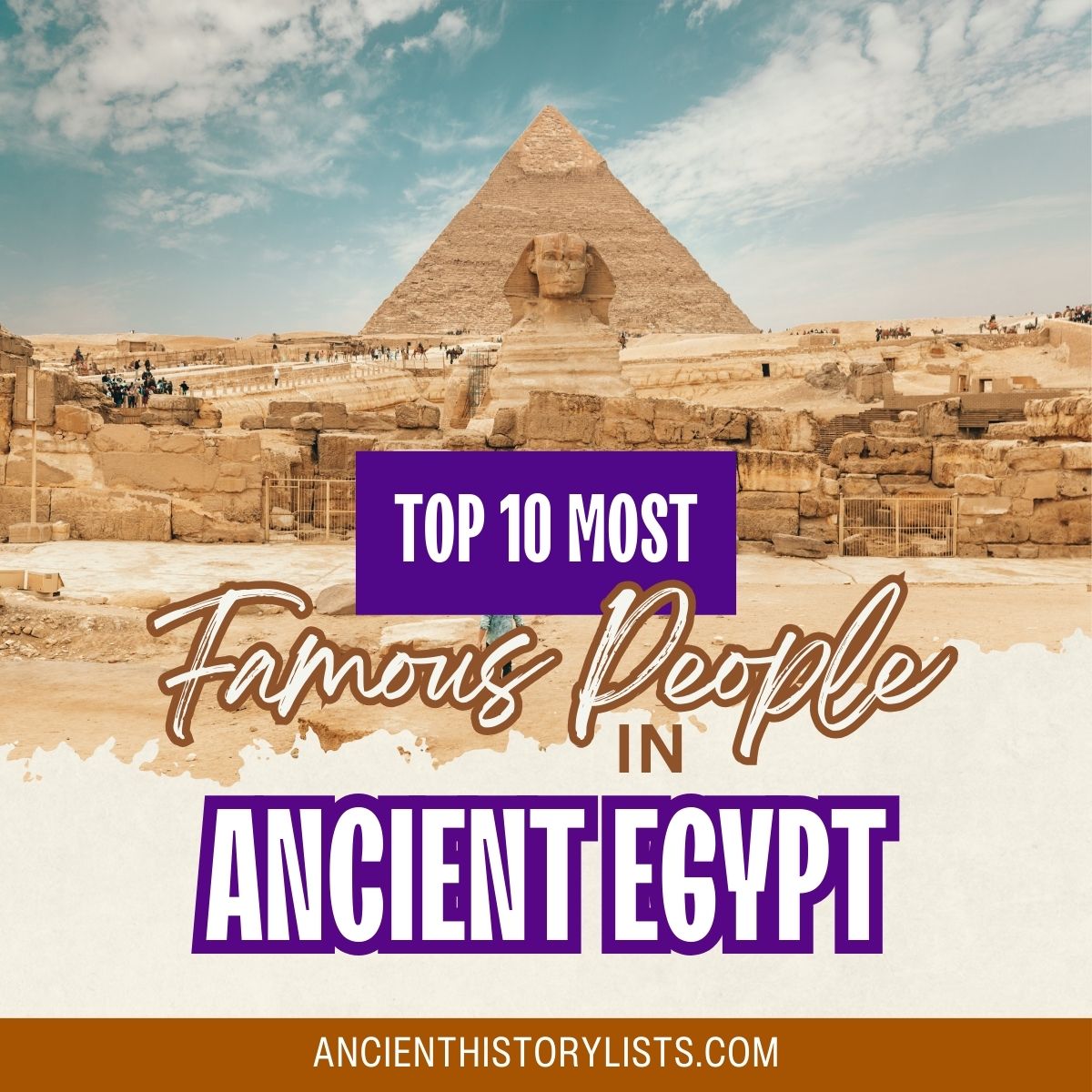
Although Egypt has contributed a lot to various fields such as science, literature, and philosophy, the country is primarily known for its unique architecture and artifacts which mark it out from other countries.
Some of Egypt’s most famous people were:
1. Moses

Moses was a religious leader in Egypt in 1391 BC. He was born in the Land of Goshen. He was also regarded as Israel’s lawgiver. During his time, the practice of slavery was common in Egypt. Slave masters exploited their slaves and treated them like animals.
Although Moses was born to a family of Hebrew slaves, he was adopted as a baby and given all the benefits of royalty. He was well educated and considered the son of the prince. After he learned of his birth and original family, he ran away to the southern islands where nobody was able to find him.
He was later told by God to help other slaves who were still being exploited in Egypt by their masters. Following what he felt was God’s words he returned to Egypt and carried out God’s mission to help these slaves escape. He then formed a Hebrew community and became the prophet of all Abrahamic religions, very close to Judaism.
He was looked up to as a teacher by his followers. After he had served as a leader for a while, he handed his task over to Joshua and left Israel.
2. Ibn Khaldun
Ibn Khaldun was a historiographer and historian. He was born in early 1332 in Egypt and was considered the father of modern sociology. Ibn Khaldun was born to a wealthy family. He learned from many good teachers, but also liked to educate himself. Although he was rich, he had many difficulties while growing up and lost his parents in his early teens.
He was best known for his intelligence and education and went on to follow a career in politics. The complexities of politics influenced how he viewed people and when he stood against something that he believed to be very wrong, he was imprisoned.
On his release from prison he went on to become a scholar. He wrote many books to share his knowledge and these books are still relevant to the readers of today. He was greatly acclaimed for his writings and is considered to be the greatest philosopher of his time.
3. Maimonides
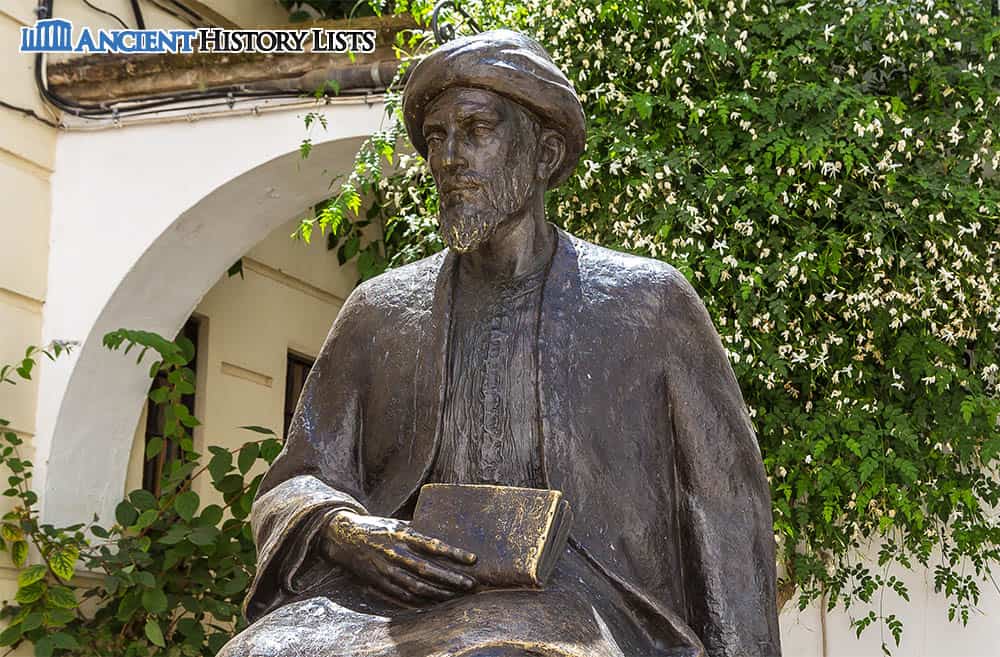
Maimonides was a very well-known Jewish philosopher. He was born in 1135 in Spain. Besides being a philosopher, he also was a physician and a scholar.
He developed an interest in science and philosophy when he was very young. It was assumed that he followed the Ganoic tradition which many people were opposed to at the time believing that Muslim law was of greater importance.
He wrote many books which reflected his personality and philosophies. Maimonides was elected as leader of the Egyptian Jews, and it is believed that he was chosen not only because of his leadership qualities but also for his compassion towards his people.
His parents left their wealth to his younger brother who was a merchant, and after his brother’s demise, Maimonides went on to learn medicine and become a physician. He had an immense knowledge of Greek medicine.
4. Ankhesenamun
Egyptian queens were more popular than their male counterparts. Ankhesenamun was a queen who was born in 1348 BC and passed away at the age of 26. She was sister and wife to the well-known pharaoh, Tutankhamun, and had possibly been married to other pharaohs as well such as her own father after the death of her mother.
It was common for pharaohs to marry their own family members such as siblings or cousins. They believed that in this way the royal bloodline would remain pure and uncontaminated and the ruler would always be from the royal family itself.
The downside to this was that the rulers then assassinated their own siblings so that they would be able to rule over the whole of Egypt themselves. Ankhesenamun passed away at a very young age and not much has been written about her, although rumor has it that she did have children with her father.
5. Akhenaten
Akhenaten was an Egyptian pharaoh who died in approximately 1332 BC. He was known for revolutionizing the system of polytheism and introducing the worship of Aten instead which was an aspect of the sun god.
He strongly believed that people should worship the sun and this can be seen from the art during this period. He also constructed many temples so that the people could worship this deity. Many people were also made to change their names when they became followers of Aten.
Akhenaten ruled with his father for eight years before being crowned king soon after his father’s death. He was known to have all the skills required to rule, and as the years passed, he continuously revised the Egyptian religion.
After his death, many of the things that he had imposed on the people were abandoned and the monuments that he built were destroyed. The people reverted to their previous family names and continued to believe in the gods they had worshiped before Aten. This strongly suggested that Akhenaten was an imposer who did not empathize with his people and forced them to follow what he himself felt was absolute and right.
6. Cleopatra
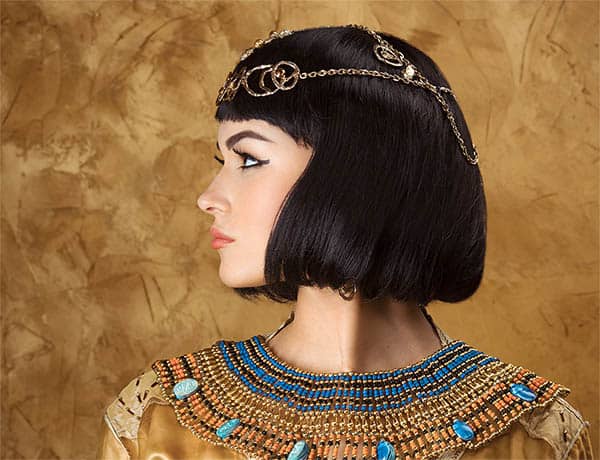
Cleopatra took over from her father on his death. She was well known for her beauty, as depicted in various paintings and sculptures, and for her strength as a ruler.
Cleopatra was also knowledgeable in many other fields and during her reign, she dedicated her time to the administration of the Egyptian states. Her ability to speak multiple languages would have helped her with this task.
She was very good as an administrator, creating many policies which helped the Egyptian economy to thrive. During her reign, there were silver, copper, and other metal coins with her image engraved on them, but no gold coins.
After she committed suicide, her children were taken care of by her father’s second wife. Her brothers and her son ruled Egypt after her but she was the last Egyptian queen before the Romans took over. Her affairs with the Roman leaders Julius Caesar and Mark Antony have been well documented.
7. Hatshepsut
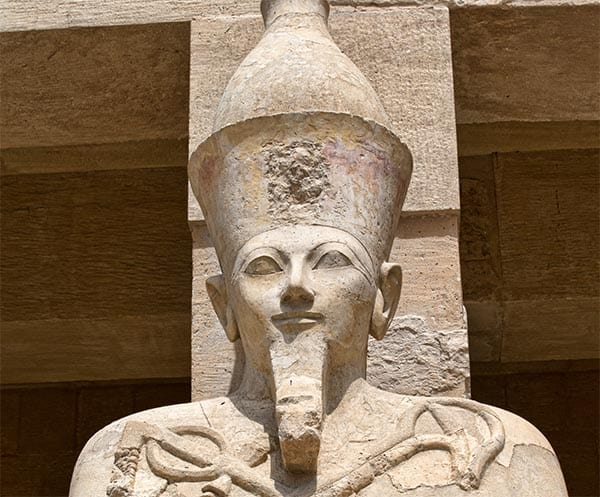
Hatshepsut served as pharaoh until Pharaoh Thutmose III was old enough to take power. She acted as the pharaoh for almost two decades and was very successful and loved by the people.
Under her rule, Egypt was peaceful and flourished, many buildings and sanctuaries were constructed and the country became economically stable. She was the wife and sister of Thutmose II and went on to be the wife of Thutmose II’s son, Thutmose III.
After her death, Thutmose III removed her paintings and sculptures from the walls of the temples and other buildings.
8. Nefertiti
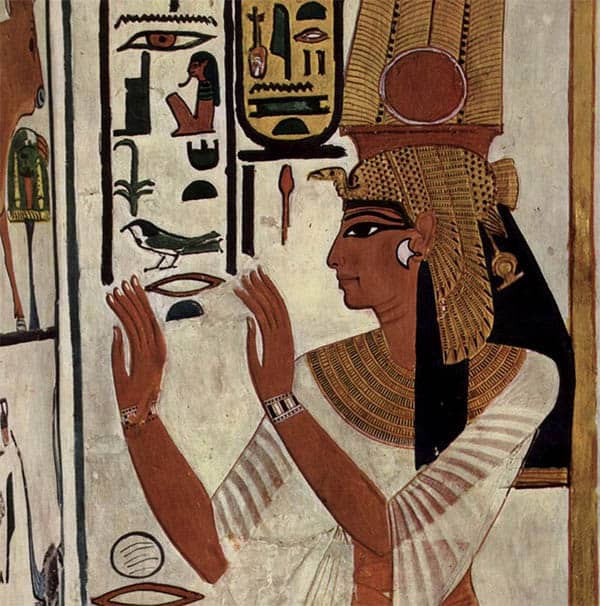
Nefertiti’s royal bloodline cannot be confirmed but she claimed to be the daughter of Ay and his wife. She became the royal wife of the emperor, Akhenaten, and had six daughters with him.
Old paintings show that she worshiped the sun god with her husband and taught her children to do so as well. After her husband’s death, she is known to have been co-regent with the pharaoh. She was a good administrator.
9. Ramses II
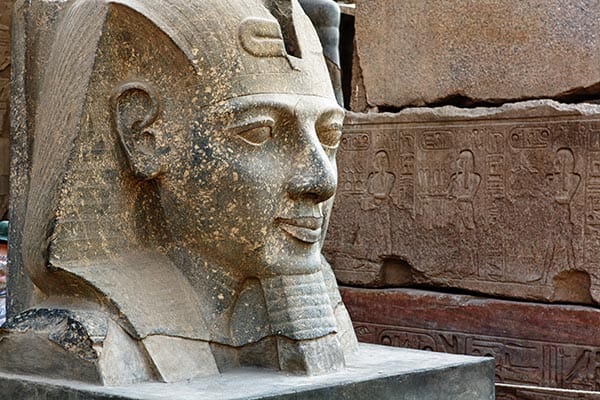
Ramses II was the greatest and most celebrated Egyptian pharaoh of his time. At the age of 14, he was made prince by his father and he ruled for six decades after his father’s death.
Early on in his reign, he built many monuments and temples to promote the Egyptian civilization. He fought numerous wars and made Egypt rich in resources before his death at the age of 90.
10. Tutankhamun
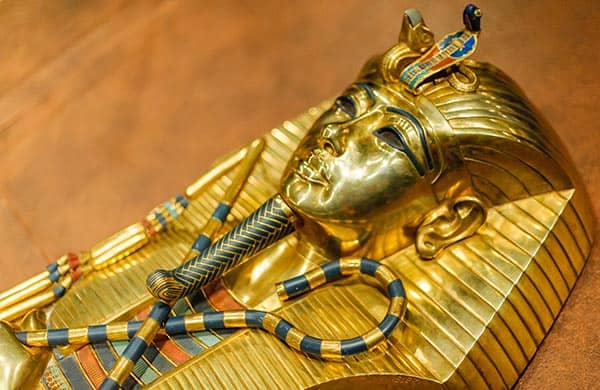
Tutankhamun was a very young pharaoh. Born in 1332 BC, he was married off at a very early age to his half-sister Ankhesenamun. He passed away when he was just 18.
During his reign, he changed the god that the Egyptians used to worship from the Aten god to the Amun god. He built temples to the Amun god and then named himself Tutankhamun that meant the living image of Amun.
He made great efforts for the kingdoms to live in peace with each other but despite these efforts, there were still many wars which weakened the economies of individual kingdoms. He was physically disabled and did not fight himself. He was known to be a fine adviser and philosopher and the flowers found in his tomb suggest that he was appreciated by many people.
His mummy contains two children’s bodies that people have assumed to be the premature babies that his wife Ankhesenamun had given birth to. It was said that he and his wife had a very passionate marriage but never had children due to Tutankhamun’s disabilities. He had many wives. The reason for his death is still unknown. Reports suggest that he may have been assassinated for his throne by his wife’s grandfather, but this is unsubstantiated.
These famous Egyptians have put Egypt on the map. The country has a rich history and culture and was far ahead of its time. The people of Egypt were the first to make use of things like toothpaste, bed sheets, and many other items that people still use today. They were exceptional in the field of construction, making intricate and geometrically accurate buildings such as the pyramids long before the introduction of modern technology, and many of these buildings still exist today.